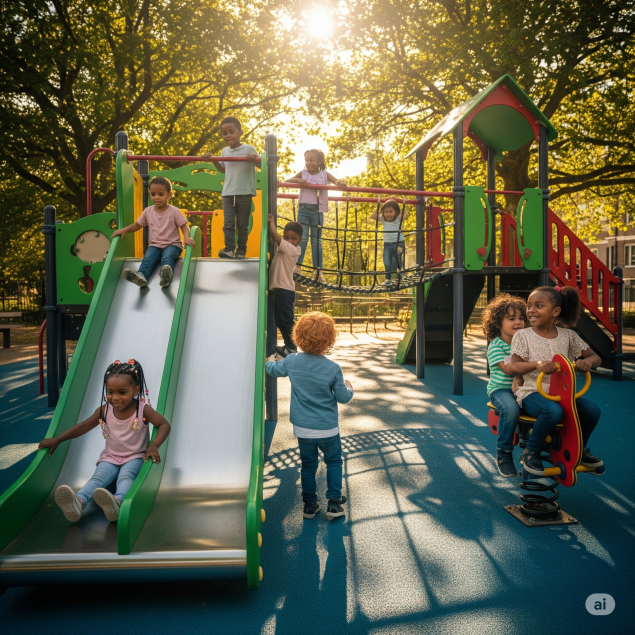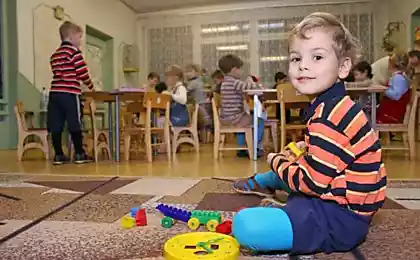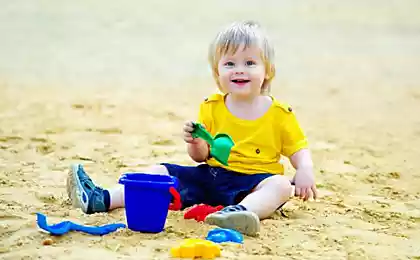121
How to be a parent and not screw up

Parenting is not a profession taught at university. It’s more of an extreme sport where the rules of the game change every day and the instruction is written in a language no one understands. But the good news is that no one is born a perfect parent, and that’s perfectly normal.
Kindergarten: to send or not to send?
The key principle: A kindergarten decision should be based on the needs of a particular child and not on the public expectations or fears of parents.
Kindergarten concerns almost all parents. Some fear that the child is not ready for socialization, others worry that they will miss important moments of its development. The truth, as always, lies in the middle.
Kindergarten does give a child the opportunity to learn how to interact with other children, but it is not the only way to socialize. It is important to observe your child: how he reacts to new situations, whether he is comfortable in the group, whether he needs more time to adapt.
Practical advice: Try short-term group activities - development centers, playgrounds, mugs. This will help you know if your child is ready for a longer stay.

Parenthood after divorce: how not to harm the child
Divorce is always a painful process, especially when there are children in the family. But it's important to understand that children are much more resilient than we think. The main thing is not to make them hostages of adult conflicts.
Studies show that children adapt better to their parents’ divorce when they are given honest, age-appropriate information about what is happening.
The Golden Rules of Parenthood After Divorce:
1. Never talk badly about your ex-partner with your child. Even if you’re right, children shouldn’t choose between their parents.
2. Maintain stability in the child’s life. The usual daily routine, favorite toys, permanent residence - all this helps the child feel safe.
3. Allow the child to express his feelings. Anger, sadness, confusion are normal reactions to changes in the family.
Remember, your job as a parent doesn’t go away after a divorce. On the contrary, it becomes even more important. The child must feel loved by both parents even though they no longer live together.
Why do children reach for bullies?
This question baffles many parents. You raise a child in a spirit of kindness and mutual help, and he is friends with those who break the rules and behave aggressively. What's going on?
Children often admire those who seem strong and independent. Bullies are usually not afraid to break the rules, they seem confident and able to protect themselves. For a child who is still learning to navigate in the complex world of social relationships, it can look appealing.
What to do: Do not forbid friendship categorically. Instead, discuss with your child what qualities are really important in people. Help them understand the difference between real power and aggression.

How to let go of a child and keep your mind
There comes a time when a child wants to go to camp, stay with friends for a weekend, or go on a school trip. And here begins a real test of strength for the parental nerves.
Fear for a child is normal. But it is important to distinguish between real threats and imaginary dangers. The world has not become more dangerous than before. We’ve just become more aware of what’s going on around us thanks to information technology.
Progressive release strategy:
• Start with short periods of independence
• Discuss safety rules with your child
• Establish clear communication methods
• Trust your intuition and common sense.
Remember: the goal of parenting is not to protect the child from all possible problems, but to teach him to cope with them on his own. Every time you let your child go, you give him the opportunity to become stronger and more confident.
How to grow a harmonious personality without losing yourself
The most important secret of successful parenting sounds paradoxical: to be a good parent, you must first be a happy person. Children copy not what we say, but how we live.
Research by psychologists suggests that children of emotionally stable parents have better mental health and social adjustment scores.
This means that your own interests, hobbies, careers and relationships with your partner should not be completely dissolved in parenthood. A child does not need a perfect parent, but a living person with his interests, emotions and dreams.
Practical Steps to Harmony:
1. Set boundaries. Time for oneself is not selfishness, but a necessity. Even 15-30 minutes a day dedicated to you alone can make a difference.
2. Admit your mistakes. Children need to see that adults can also make mistakes and learn. It makes you more human in their eyes.
3. Don't try to control everything. Some lessons a child should learn on their own, even if it involves pain or frustration.
The main rule: trust your intuition. No one knows your child better than you. Expert advice, books and articles can be helpful, but the final decision is always yours.
Parenting is not an exam that you need to pass perfectly. It is a long journey full of discoveries, mistakes and small victories. The most important thing is to remember that love and acceptance are more important than any pedagogical method. Your child does not need a perfect parent. He needs a real person who loves, supports and believes in him.
Glossary
Socialization The process of integration of the child into society through the development of social norms, values and behavior patterns.
Adaptation The ability of the child to adapt to new conditions and environmental requirements.
Emotional stability The ability of a person to maintain psychological balance in various life situations.
Parental boundaries Clear rules and restrictions that help your child feel safe and understand what is expected of them.
Harmonious personality A person who develops comprehensively knows how to balance various aspects of life and maintain internal balance.
The art of communicating with closed people
Alicia Bundy: The Anatomy of the Modern Media Personality























